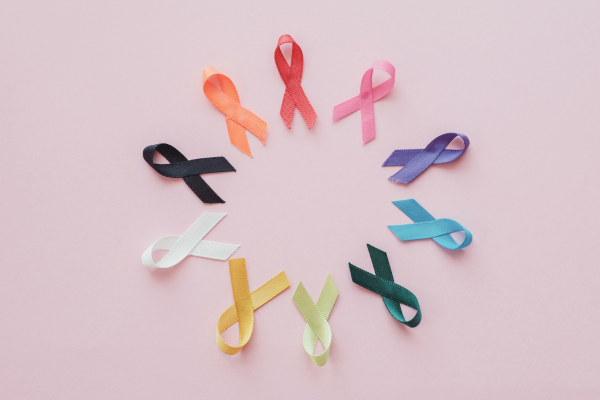Cancer – a word no one wants to hear, but something no one should ignore. With almost two million new cases and over 600,000 cancer-related deaths in the United States in 2020, cancer demands our attention. It demands our energy and awareness. But, it also calls us to tackle healthy lifestyles as a prevention strategy, a “big picture” strategy in which we can all engage. As a company that is dedicated to inspiring individuals to achieve optimal well-being, it is our hope that you once again see the POWER of an overall healthy lifestyle as we discuss the overarching lineup of cancer prevention.
- Avoid tobacco in all forms, including exposure to secondhand smoke. Tobacco provides zero TRUE health benefits. (We are available for coaching if you need support in your quest to stop tobacco use.)
- Eat a whole foods diet, made up of a variety of fruits, vegetables, lean proteins, healthy fats, and whole grains, and the more plant-based the better. Nutrient dense foods (whole foods with little to no processing or added unnecessary ingredients) support your body’s ability to fight cancer with polyphenols, antioxidants, fiber, and a variety of other vitamins and minerals!
- Exercise regularly. Having a good sweat (consistently) can do more than help you achieve a healthy weight and increase your lean muscle mass (which yes, these are important for cancer prevention, too). Regular exercise has been shown to help reduce inflammation, boost the immune system, and can act as a healthy tool for stress management!
- Limit alcohol consumption to no more than an average of one drink a day. Many experts consider regular and excessive alcohol consumption to be one of the most important preventable risk factors for cancer, as it causes inflammation, affects hormones directly related to certain cancers, damages cells, and can lower inhibitions that may lead to making additional unhealthy choices. The risks from alcohol far out-weigh any benefits you may hear about.
- Avoid unnecessary exposure to radiation and industrial and environmental toxins. The radiation from medical imaging and sunlight and various toxins from certain environments can damage our cells and our body’s ability to fight invaders, also known as free radicals or cancer-causing agents. Talk with your doctor about which medical images are necessary – Wear sunscreen – Utilize proper protective equipment when around potential toxins! And, a reminder that electromagnetic radiation and radiofrequency radiation do NOT cause cancer.
- Practice safe sex and avoid risky behaviors (such as sharing needles, etc), which can help you avoid infections that contribute to cancer.
- Make quality sleep a priority. Our body needs a reset – physically, mentally, and emotionally. The stressors of our daily lives, while they can be helpful in moving us forward, they still cause stress on our systems. Just like stress can keep us mentally and emotionally distracted, it can also “distract” our physical systems from working properly. Sleep can help us reset and renew.
- Know your family history, be honest about your habits with your medical providers, and get regular cancer screenings. An open and honest relationship with your doctor is a “best practice” for life. Avoiding conversations about certain habits, issues/pains, etc does nothing but potentially increase your risk for the development or progression of cancers, as well as other health concerns. Make a point to ask questions so at the end of the day, you feel empowered, equipped, and supported in your health journey!
This lineup of cancer prevention strategies is also, as you may have noticed, a list of your basic healthy lifestyle factors! We want to add one more to the mix, however – a lifestyle strategy we have focused on quite a few times over the last few months. A strategy that can act as a stress management tool, an encourager of healthy habits, and even act as a teammate during the process…
Engage in healthy relationships. We know that our mental and emotional health are impacted by our relationships. Research shows that our physical health is significantly impacted, as well. This happens in a few ways… Being in a healthy relationship usually means you are supported in your quest toward greater health; they may even join you in the process, tackling one or more of the strategies from above alongside you. Healthy relationships also provide an environment to discuss potential health challenges. Sometimes we need to say something out loud to a close friend or family member then hear them encourage us to seek help to make us actually make the call to a doctor. The support and partnership we gain from healthy relationships, while they aren’t DIRECTLY associated with cancer prevention, those honest conversations may make all the difference in the world. They may be the first step to finding a smoking cessation class, or trying a new vegetable this week, or signing up for a group fitness program, or to say no to a risky situation… and the list goes on.

